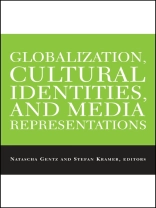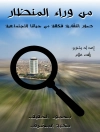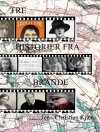Globalization, Cultural Identities, and Media Representations provides a multidirectional approach for understanding the role of media in constructing cultural identities in a newly globalized media environment. The contributors cover a wide range of topics from different geopolitical areas, historical periods, and media genres. Case studies examined include the shift from print to Internet, local representations of modern world cinema and glo/cal television, narrative strategies in transnational literature, and cultural economics of the mediation of world music in India, China, Algeria, Israel, Europe, and the United States. This case study approach allows for deeper insights into the complexity of each cultural subsystem as part of the whole media culture system. This book exemplifies a transcultural and transdisciplinary dialogue that maps out new—relocalized—territories and borders for mediated cultural identities and also reveals the complexity and connectedness of all of these discourses.
Table of Content
Acknowledgments
Introduction: Media of Culture and the Culture of the Media
Natascha Gentz & Stefan Kramer
1. The Printing Press and the Internet: From a Culture of Memory to a Culture of Attention
Aleida Assmann
2. Globalization and the Experience of Culture: The Resilience of Nationhood
Wimal Dissanayake
3. Transcultural Narrations of the Local: Taiwanese Cinema Between Utopia and Heterotopia
Stefan Kramer
4. Garifuna Song, Groove Locale and “World-Music” Mediation
Michael C. Stone
5. The Thousand Faces of Xena: Transculturality through Multi-Identity
Miriam Butt & Kyle Wohlmut
6. Literature/Identity: Transnationalism, Narrative and Representation
Arif Dirlik
7. How to Get Rid of China: Ethnicity, Memory, and Trauma in Gao Xingjian’s Novel One Man’s Bible
Natascha Gentz
8. Film and Music, or Instabilities of National Identity
Roger Hillman
9. The Cinematic Support to National(istic) Mythology: The Italian Peplum 19101930
Irmbert Schenk
10. Their Master’s Voice?
The Coverage of Intifada II on Israeli Television
Tamar Liebes
11. Drifted Liberties and Diffracted Identities?
Algerian Audiences and the “Parabola”
Ratiba Hadj-Moussa
12. The Right to Be Different: Photographic Discourse and Cultural Identity in Hungary
Peter Braun
Contributors
Index
About the author
Natascha Gentz is Junior Professor of Sinology at Frankfurt University and the coeditor (with Michael Lackner) of
Mapping Meanings: The Field of New Learning in Late Qing China.
Stefan Kramer is Associate Professor of Media Studies at the University of Constance, Germany.












